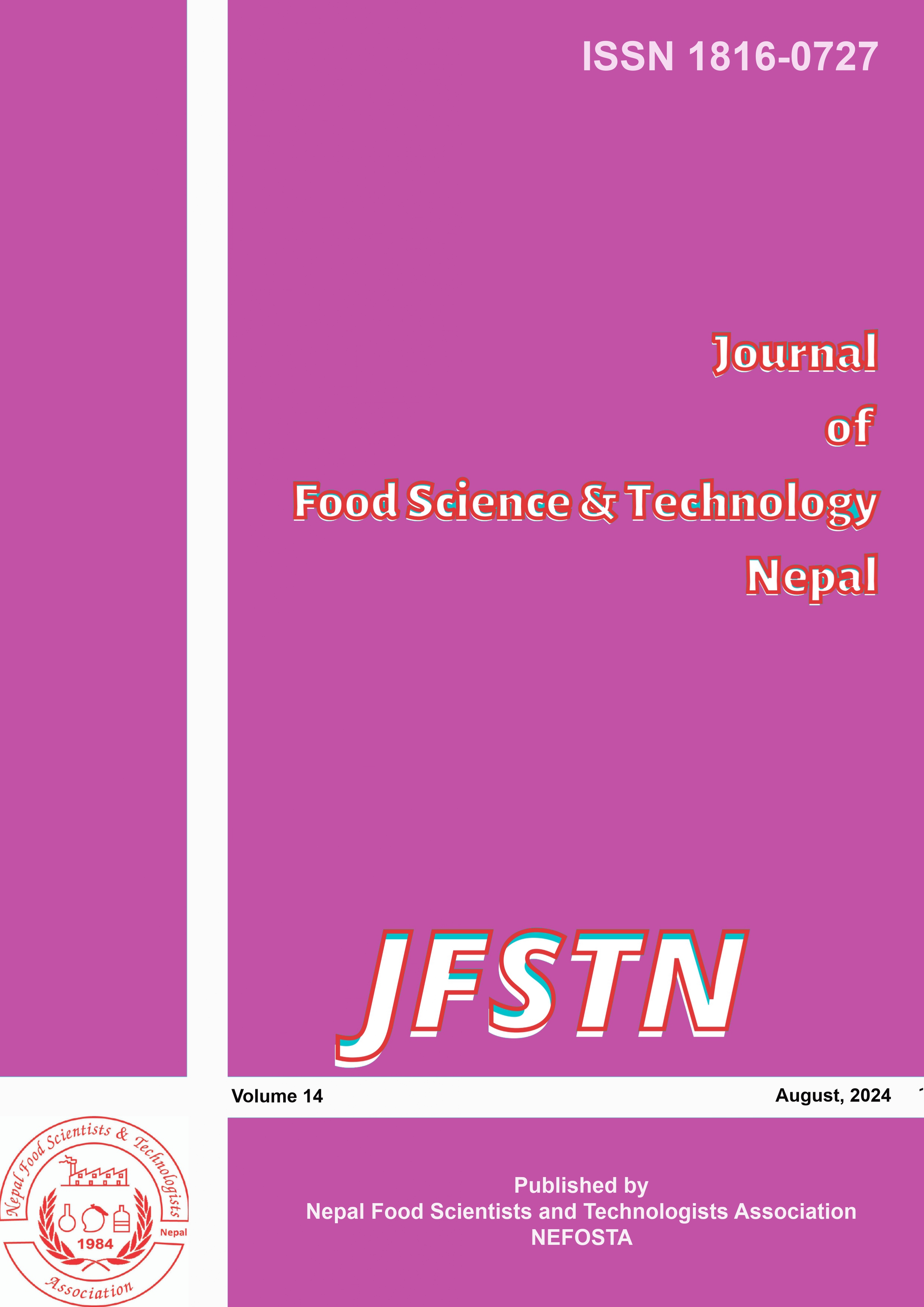Blanching induced effect on bioactive compounds and anti-diabetic properties of bitter gourd
DOI:
https://doi.org/10.3126/jfstn.v14i14.71707Keywords:
Alpha-amylase, Alpha-glucosidase, Ascorbic acid, Antioxidant activity, ChlorophyllAbstract
The purpose of the study was to determine how pretreatment techniques, such as blanching in hot water or alkaline solution, affected the bioactive ingredients, and anti-diabetic properties of bitter gourd. The bitter gourd was blanched in hot water and an alkaline solution (a mixture of saturated magnesium oxide and 0.1% sodium carbonate) at 98 °C for three minutes. Both pretreated bitter gourds were submerged in a 5% salt solution for 1 hour. Untreated fresh bitter gourd was used as the control. Ascorbic acid levels (mg/100g) and antioxidant activity (DPPH inhibition %) were dramatically (p<0.05) decreased in pretreated bitter gourd. When bitter gourd was blanched in an alkaline solution, more chlorophyll was retained, and when it was blanched in a hot water solution, the carotenoid concentration rose dramatically (p<0.05). The extract prepared from raw bitter gourd was found to have better inhibitory properties (p<0.05) against alpha-amylase and alpha-glucosidase, though all showed inhibition properties below 50%, which was low. The research concluded that raw bitter gourd is superior, however the extract percent needs to be increased to determine the IC50 value for the enzyme inhibition properties. Further research can be carried out by increasing the concentration of the extract for enzyme inhibition properties and by carrying out the trial in animals.
Downloads
Downloads
Published
How to Cite
Issue
Section
License
The author will be the copyright holder of this open access journal - 'Journal of Food Science and Technology Nepal (JFSTN)'.




